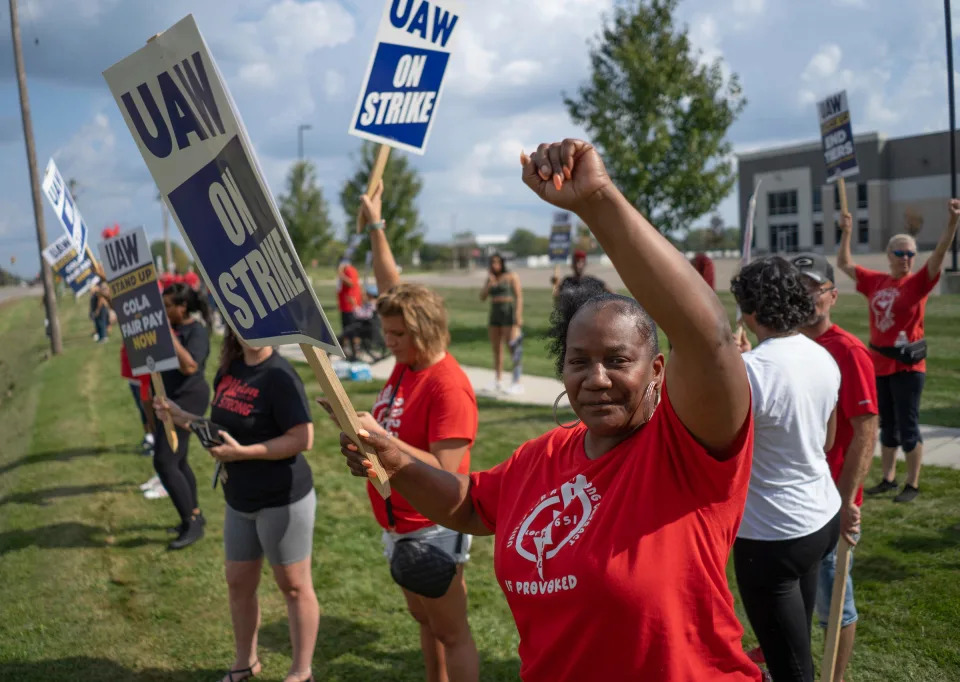Jeannine Mancini
Tue, September 26, 2023

Mercedes Wedaa, a former housekeeper for Amazon.com Inc. Founder Jeff Bezos, filed a lawsuit against him and two companies responsible for managing his properties. The lawsuit, filed in November 2022 in Seattle, claims that she and other employees worked in unsafe and unsanitary conditions for extended 14-hour shifts without breaks. According to Wedaa, she was hired in 2019 with the requirement that she "work around a family without being seen."
One significant issue raised in the lawsuit is the lack of readily accessible bathrooms for housekeeping staff. While the Bezos family was at home, the housekeepers could only enter the residence for cleaning purposes. Accessing a bathroom directly from the laundry door was not an option because that led to the family's living space. To reach a restroom, housekeepers had to climb out of the laundry room window, walk along a path to a mechanical room and proceed downstairs to a bathroom. This arrangement was in place for about 18 months, leading to frequent urinary tract infections among the staff because of restricted toilet access, Wedaa alleges.
Wedaa's other complaints include the absence of resting spaces for housekeepers, meals consumed in laundry rooms and discriminatory treatment toward Hispanic employees. She also claims she raised concerns about the employment of undocumented workers, the lack of rest breaks and unsafe working conditions. Following these complaints, Wedaa said she was demoted and then dismissed on the grounds that she seemed "unhappy" and was negatively affecting the team's morale. She seeks back pay, benefits and an undetermined amount in damages.
Bezos's attorney Harry Korrell refutes these claims, labeling them as meritless and absurd. Korrell notes that Wedaa was a lead housekeeper who made a six-figure salary and was in control of her break and meal times. He asserts that multiple bathrooms and break rooms were available to staff. In addition, he said that Wedaa filed the lawsuit after her demand for a $9 million settlement was rejected, and he insised she was terminated for performance reasons.
Patrick McGuigan, Wedaa's lawyer, supports his client as a "very credible person" with "compelling evidence" to back her allegations. The lawsuit contends that housekeepers were initially allowed to use a restroom in a security room, but this was later revoked for being a "breach of security protocol."
A source from one of the managing companies named in the lawsuit, Northwestern LLC, claims that staff had access to break rooms with seating, tables, stocked refrigerators, a coffee machine and snacks. They add that multiple bathrooms were available near the break rooms and that when the family was not in residence, staff could also use the family kitchen and other amenities.
In the midst of these competing narratives, Wedaa's lawsuit also states that she and other Hispanic housekeepers were treated differently from their Caucasian counterparts, adding another layer of complexity to a case already fraught with sensitive issues. Bezos's fiancée, Lauren Sanchez, is Mexican-American, and Korrell argues that the suggestion of racial discrimination against Wedaa is "absurd."
The lawsuit is still pending, and the amount of damages Wedaa is seeking will be determined at trial. Bezos is the third-richest man in the world with a net worth of $153 billion, according to Forbes.
© 2023 Benzinga.com. Benzinga does not provide investment advice. All rights reserved.














